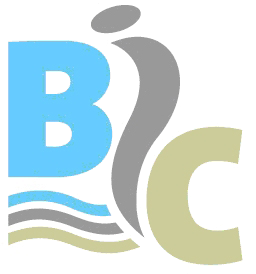Calendar
Year 8 Induction Day (No Transport)
Year 8 and Year 12 (No transport)
All students return
Mid-Term
Staff development day (no students)
Christmas Holidays ( school ends for pupils @ 11.45) (students return 7th Jan 2025)
Science
COURSE CONTENT
The course incorporates the skills, knowledge and understanding of how science works. It allows students to develop transferable skills that will benefit them in vocational training and employment.
CCEA Double Award Science
COURSE CONTENT
The course incorporates the skills, knowledge and understanding of how science works. It allows students to develop transferable skills that will benefit them in vocational training and employment.
ASSESSMENT
The specification includes seven units
Content | Assessment | Weighting | Completion |
Biology Unit 1 (B1): Cells, Living Processes and Biodiversity | An externally assessed written examination | 11% | November of Year 11 |
Chemistry Unit 1 (C1): Structures, Trends and Chemical Reactions, Quantitative Chemistry and Analysis. | An externally assessed written examination | 11% | February of Year 11 |
Physics Unit 1 (P2): Motion, Force, Moments, Energy, Density, Kinetic Theory, Radioactivity, Nuclear Fission and Fusion. | An externally assessed written examination | 11% | Summer of Year 11 |
Biology Unit 2 (B2): Body Systems, Genetics, Microorganisms and Health. | An externally assessed written examination | 14% | Summer of Year 12 |
Chemistry Unit 2 (C2): Further Chemical Reactions, Rates and Equilibrium, Calculations and Organic Chemistry. | An externally assessed written examination | 14% | Summer of Year 12 |
Physics Unit 2 (P2): Waves, Light, Electricity, Magnetism, Electromagnetism Space Physics. | An externally assessed written examination | 14% | Summer of Year 12 |
Unit 7: Practical Skills | For each of the three sciences, students carry out one practical task in the laboratory and a written exam, with questions based on any of the prescribed practical tasks and any other practical tasks from the specification. | 25% | Throughout Year 11 and 12. |
WHO THIS COURSE IS FOR
A student who
- is highly motivated
- is committed to working to improve standards in Science for personal development and to obtain their best possible grade
- can work well both independently and with others
- has good mathematical ability
- has well developed practical and problem solving skills
- can recall and express information concisely under examination conditions
CAREERS EDUCATION, INFORMATION, ADVICE AND GUIDANCE
Not all scientists wear white coats or work in labs and can be found in all types of employment areas from the more traditional – offices, laboratories, building sites and factories to the less conventional – up a mountain, on an oil rig, at a water treatment plant, at an airport and under the ground.
Choosing Double Award Science will widen options later in life as science is a valued and useful subject for the majority of careers. For those hoping to follow a Science related career path or hoping to study Science post 16, Double Award Science is an essential stepping stone.
Considered one of the STEM qualifications (Science, Technology, Engineering and Mathematics), there is a perceived degree of difficulty attached to Science that differentiate students with this qualification, making them very employable. Similarly, good grades in STEM subjects are highly valued by further education establishments.
CCEA Single Award Science
COURSE CONTENT
This Single Award Science course encourages students to be inspired, motivated and challenged by following a broad, coherent, practical, satisfying and worthwhile course of study. It encourages them to develop their curiosity about the living, material and physical worlds and provides insights into and experience of how Science works.
ASSESSMENT
The single award specification includes four units:
| Content | Assessment | Weighting | Completion |
Unit 1: Biology Cells, food and energy, chromosomes and genes, co-ordination and control, the reproductive system, variation and adaption, disease and body defences, ecological relationships. | Externally assessed written examination | 25% | February of Year 11 |
Unit 2: Chemistry Acids, bases and salts, elements, compounds and mixtures, the Periodic table, atomic structure and bonding, materials, metals and the reactivity series, rates of reaction, organic chemistry. | Externally assessed written examination | 25% | November of Year 12 |
Unit 3: Physics electrical circuits, household electricity, energy, electricity generated, heat transfer, waves, forces and motion, radioactivity, the Earth in space. | Externally assessed written examination | 25% | Summer of Year 12 |
| Unit 4: Practical Skills | Students carry out two practical tasks in the laboratory under exam condition and a written practical theory exam, with questions based on any of the prescribed practical tasks from the specification. | 25% | Throughout Year 11 and Year 12 |
OCN Applied Science Level 2 GCSE Equivalent Grade B
COURSE CONTENT
Learners must successfully complete all three mandatory units to achieve the qualification.
- Physical Processes
- Life Processes and Living Things
- Materials and their Chemical Properties
ASSESSMENT
The qualification is 100% portfolio based and teacher assessed and carries performance points comparable to a GCSE Level 2 equivalent to a grade B.
WHO THIS COURSE IS FOR
This qualification is targeted at individuals who are interested in developing their knowledge and understanding in applied science. It will enable learners to progress to further qualifications in applied science at a higher level or to study particular aspects of science in greater depth.
CAREERS EDUCATION, INFORMATION, ADVICE AND GUIDANCE
This qualification will provide learners with the opportunity to acquire knowledge and skills that would support progression to employment within the Science Technology Engineering and Mathematics (STEM) sector.

